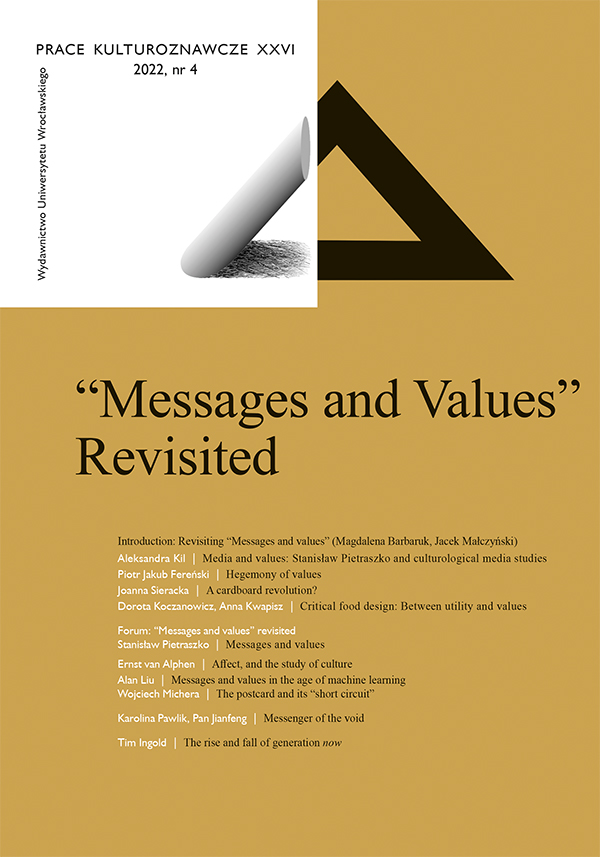

Artykuły

This article is an analysis of the poetics of the women’s strikes which took place in Poland in 2020 in response to the ruling of the Constitutional Tribunal that tightened Polish abortion law by banning pregnancy termination due to fetal anomalies. My main focus is on cardboard placards made by the protesters and used at the demonstrations. Comparing them with the poetics of the black protests launched in 2016 as a response to a bill restricting Polish abortion law, I take as my starting point the recognition of the revolutionary character of the recent mobilization, emphatically showcased—as shown by my analysis and the findings of other scholars (e.g., P. Czapliński and A. Graff)— in breaking with all the symbolic languages and the post-transition social contract, a gesture expressive of the rejection of the strategy of assimilation to the national-conservative hegemony. Analyzing multiple references to Adam Mickiewicz’s Dziady, magical thinking, and spell formulas in the poetics of the women’s strikes, I highlight the significance of the carnivalization of the protests. I argue that thanks to it, new languages of reproductive rights emerged, alternative sources of community were evoked, and the slogans written on cardboard placards and banners and chanted during the demonstrations and marches created a relatively autonomous universe of their own. In conclusion, I seek to answer whether cardboard placards, if performatively used, can constitute cultural change and re-represent the values for which the protesters fight.